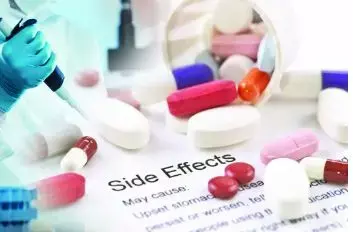- Home
- Medical news & Guidelines
- Anesthesiology
- Cardiology and CTVS
- Critical Care
- Dentistry
- Dermatology
- Diabetes and Endocrinology
- ENT
- Gastroenterology
- Medicine
- Nephrology
- Neurology
- Obstretics-Gynaecology
- Oncology
- Ophthalmology
- Orthopaedics
- Pediatrics-Neonatology
- Psychiatry
- Pulmonology
- Radiology
- Surgery
- Urology
- Laboratory Medicine
- Diet
- Nursing
- Paramedical
- Physiotherapy
- Health news
- Fact Check
- Bone Health Fact Check
- Brain Health Fact Check
- Cancer Related Fact Check
- Child Care Fact Check
- Dental and oral health fact check
- Diabetes and metabolic health fact check
- Diet and Nutrition Fact Check
- Eye and ENT Care Fact Check
- Fitness fact check
- Gut health fact check
- Heart health fact check
- Kidney health fact check
- Medical education fact check
- Men's health fact check
- Respiratory fact check
- Skin and hair care fact check
- Vaccine and Immunization fact check
- Women's health fact check
- AYUSH
- State News
- Andaman and Nicobar Islands
- Andhra Pradesh
- Arunachal Pradesh
- Assam
- Bihar
- Chandigarh
- Chattisgarh
- Dadra and Nagar Haveli
- Daman and Diu
- Delhi
- Goa
- Gujarat
- Haryana
- Himachal Pradesh
- Jammu & Kashmir
- Jharkhand
- Karnataka
- Kerala
- Ladakh
- Lakshadweep
- Madhya Pradesh
- Maharashtra
- Manipur
- Meghalaya
- Mizoram
- Nagaland
- Odisha
- Puducherry
- Punjab
- Rajasthan
- Sikkim
- Tamil Nadu
- Telangana
- Tripura
- Uttar Pradesh
- Uttrakhand
- West Bengal
- Medical Education
- Industry
Case of drug induced syndrome of Inappropriate Antidiuretic Hormone reported

Use of selective serotonin reuptake inhibitors (SSRIs) has been reported to be associated with the syndrome of inappropriate antidiuretic hormone (SIADH), although it is uncommon. Nonsteroidal anti-inflammatory drugs (NSAIDs), as a sole agent, are an even rarer cause of SIADH. Despite being documented in the literature, the understanding of the mechanism of both agents is limited. Recently researchers have reported a case of a patient taking both of these medications, a dangerous combination that led to the development of SIADH.
In a recently published case report by Chia-Yu Chiu, from Department of Medicine, Lincoln Medical Center, Bronx, NY, USA ,in the American Journal Of Case Reports , an 88-year-old woman with a history of asymptomatic chronic hyponatremia presented to the facility with symptomatic acute-on-chronic hyponatremia after she started using naproxen in addition to her daily citalopram.
Her hyponatremia symptoms resolved after discontinuing these 2 offending agents, along with administration of fluid restriction and oral sodium supplements.
Regarding such unwanted adverse effects, the team wrote that "Naproxen is commonly prescribed and is often taken by elderly patients to control long-term or short-term pain. SSRIs, on the other hand, are a first-line treatment for depression and are usually prescribe by a psychiatrist. Hyponatremia is a rare medication adverse effect that should be kept in mind when treating these patients with either of these medications, and should especially be considered when combining them. Medication reconciliation should be done carefully by the provider to avoid adverse effects and drug interactions. When hyponatremia is encountered, options for future medication prescriptions include rechallenging with the same medication, switching to a different medication with the same mechanism of action, or using a medication from another class altogether. Monitoring of serum sodium level is warranted when titrating the offending agent."
For the full article follow the link: 10.12659/AJCR.926561
Primary source: American Journal Of Case Reports
Dr Satabdi Saha (BDS, MDS) is a practicing pediatric dentist with a keen interest in new medical researches and updates. She has completed her BDS from North Bengal Dental College ,Darjeeling. Then she went on to secure an ALL INDIA NEET PG rank and completed her MDS from the first dental college in the country – Dr R. Ahmed Dental College and Hospital. She is currently attached to The Marwari Relief Society Hospital as a consultant along with private practice of 2 years. She has published scientific papers in national and international journals. Her strong passion of sharing knowledge with the medical fraternity has motivated her to be a part of Medical Dialogues.
Dr Kamal Kant Kohli-MBBS, DTCD- a chest specialist with more than 30 years of practice and a flair for writing clinical articles, Dr Kamal Kant Kohli joined Medical Dialogues as a Chief Editor of Medical News. Besides writing articles, as an editor, he proofreads and verifies all the medical content published on Medical Dialogues including those coming from journals, studies,medical conferences,guidelines etc. Email: drkohli@medicaldialogues.in. Contact no. 011-43720751


